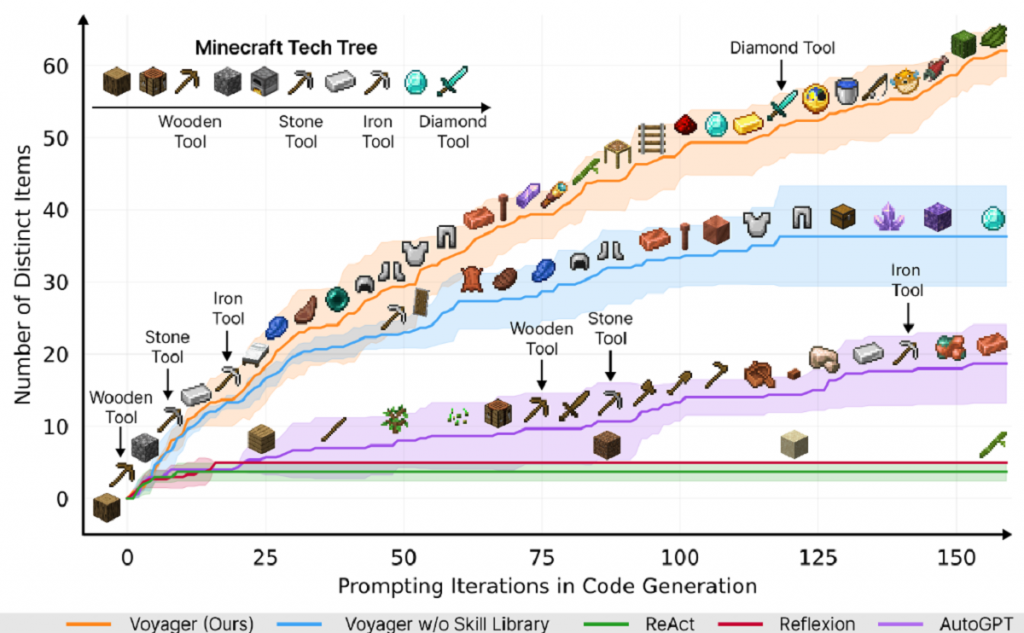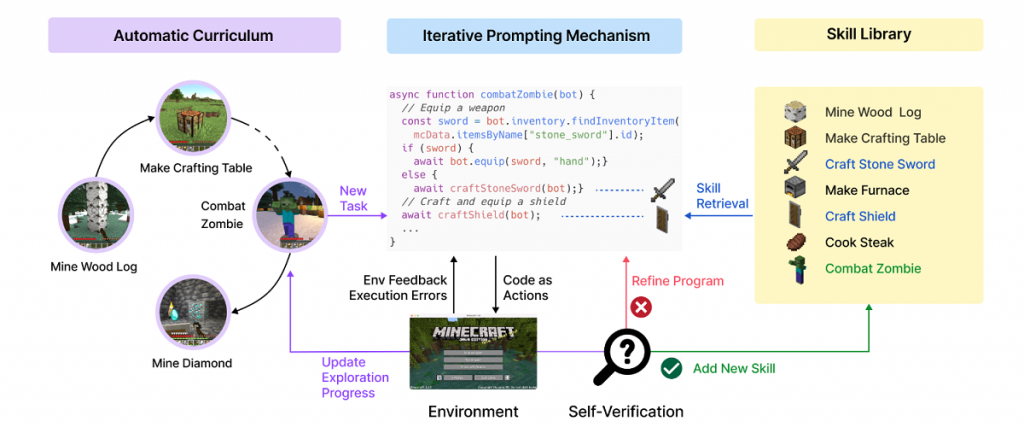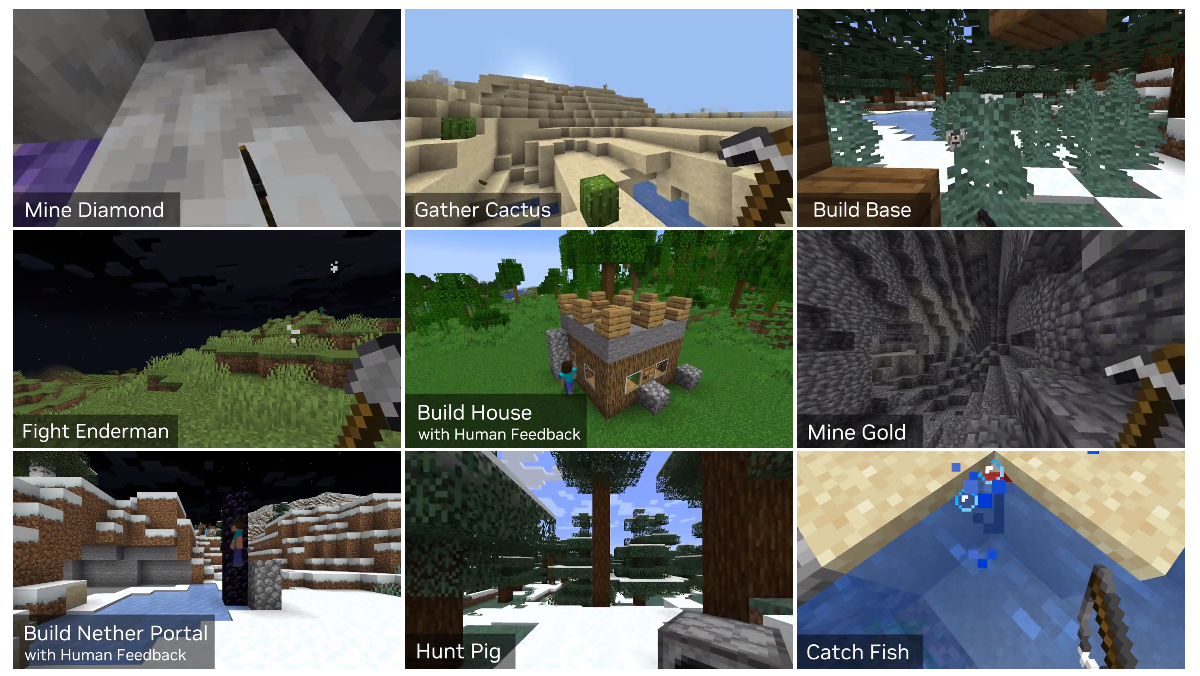A team of artificial intelligence researchers have developed a Minecraft bot called Voyager that can explore and improve its skills within the game’s vast open world. Unlike other AI systems, this one is able to write its own code through trial and error, with the help of numerous GPT-4 queries.
Voyager is an experimental AI system that can move and act freely and purposefully. It is an example of an ’embodied agent’, which is a type of AI that can interact with simulated and real environments.
Unlike other personal assistant AI systems and chatbots that do not have to physically interact with the world, household robots of the future will need to be able to navigate complex environments and complete tasks, which is seemingly what Voyager is aiming to accomplish.
Minecraft as a testing ground
Minecraft serves as an ideal testing ground due to its simplified depiction of the real world, featuring uncomplicated rules and physics. Nonetheless, it remains intricate and expansive, offering numerous possibilities to explore and achieve. While purpose-built simulators are great for AI testing, they also come with inherent constraints.
The team of AI researchers also utilised MineDojo, a simulation framework that helps AI systems understand the Minecraft world. It provides a structured environment and a set of tools that allow AI systems to learn about the world and how to interact with it.
Voyager demonstrates exceptional proficiency in these tasks, surpassing its closest competitor, Auto-GPT, by a considerable margin. However, both models employ a similar approach, which is utilising GPT-4 to generate their own code.

Working alongside GPT-4
Normally, one would train a model on a large dataset of Minecraft data and hope the AI learns how to fight skeletons at sundown. However, Voyager is different. It starts out with no knowledge of Minecraft and learns as it goes. When it encounters something new, it interacts with GPT-4 on what to do and how.
For example, When night comes, the AI knows that skeletons will come out. It’ll then asks itself, “What would a good player of this game do when there are monsters nearby?” GPT-4 then tells it, “If you want to explore the world safely, you’ll need to make and equip a sword. Then you can whack the skeleton with it and avoid getting hit yourself.” The AI now translates this general sense of what to do into concrete goals: collect stone and wood, build a sword at the crafting table, equip it, and fight a skeleton.
Once the AI has garnered the necessary items and has fought off a skeleton, it stores the skills it used in a general skill library. It does this so the next time it’s tasked with something like going deep into a cave to find iron ore, it wouldn’t need to learn the necessary skills from scratch.

The research concludes that, “Voyager exhibits superior performance in discovering novel items, unlocking the Minecraft tech tree, traversing diverse terrains, and applying its learned skill library to unseen tasks in a newly instantiated world. Voyager serves as a starting point to develop powerful generalist agents without tuning the model parameters.”
Isa Muhammad is a writer and video game journalist covering many aspects of entertainment media including the film industry. He's steadily writing his way to the sharp end of journalism and enjoys staying informed. If he's not reading, playing video games or catching up on his favourite TV series, then he's probably writing about them.






































